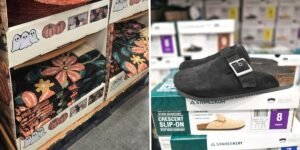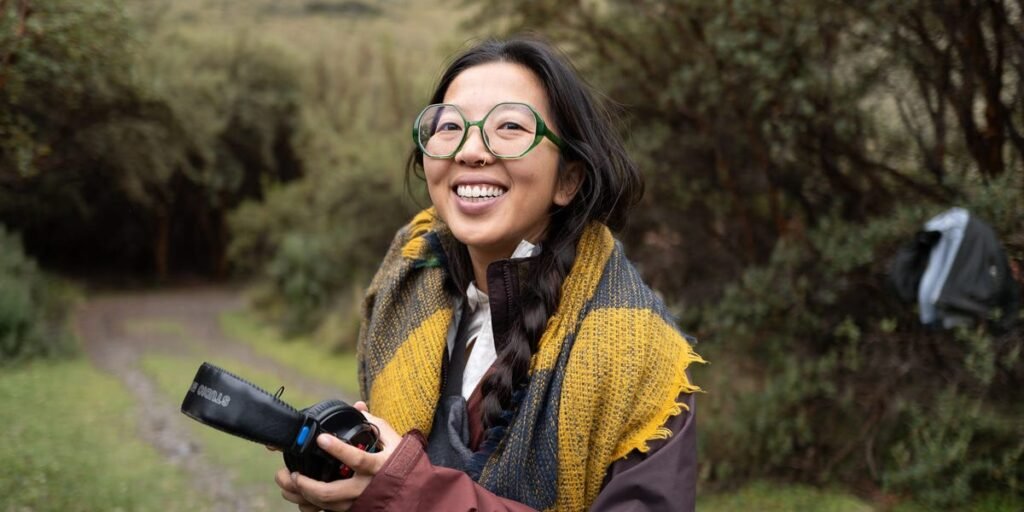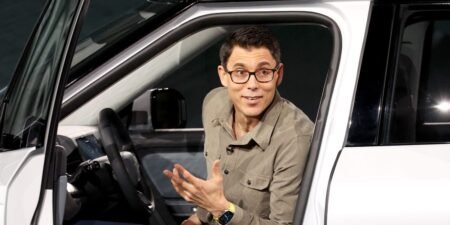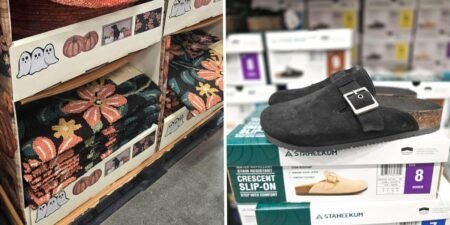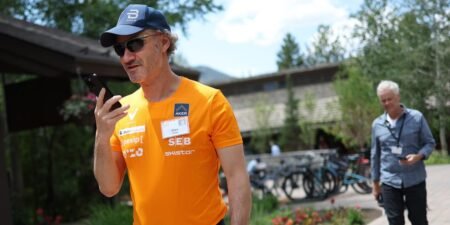This as-told-to essay is based on a conversation with Ai Vuong, a Vietnamese-born filmmaker who grew up in Texas. Her words have been edited for length and clarity.
My parents always reminded me that I was Vietnamese, even though I was growing up in Texas.
I was 5 when my family left Vietnam, and 17 when I went back for the first time. On that trip, I was surprised to find I felt more at home there.
So after graduating from college, I moved back. I spent the next seven years living in Vietnam before returning to the US.
Now, my goal is to return to Southeast Asia.
My Family’s journey West
I was born in a small town in the Mekong Delta in 1986.
My parents left Vietnam through the Humanitarian Operation program, which helped former re-education camp detainees immigrate to the US.
My dad had been imprisoned multiple times for trying to escape. When my aunt, who had gained US citizenship, sponsored us, we left.
Finding my place in Texas
We landed in Houston and eventually settled in Dallas, where I was raised in a tight-knit Vietnamese immigrant community. It helped me become fluent in Vietnamese.
Still, like many children of immigrants, I grew up quietly ashamed of what made me different. The smell of our food and the sound of my name — “Ai,” which sounds like “eye” — made me an easy target for teasing. Kids would point to their eyes or say things like “Hi, Ai.”
They were daily reminders that I was seen as different.
I grew up in a diverse suburb with other immigrant families, which gave me a sense of belonging. My parents, though, faced discrimination — especially my dad, who worked loading boxes. He didn’t talk about it much, but over time, I picked up on the harassment and bullying he endured through the little things he let slip.
Finding my place in Vietnam
I was a junior in high school when we first went back to Vietnam. After that trip, I tried to return every year.
I studied anthropology and sociology with a minor in French at the University of Texas at Austin, mostly to comply with my parents’ wishes.
In 2009, when I was 22, I moved back and joined a volunteer program in Huế, in central Vietnam. Back then, few Vietnamese Americans were doing that, and my relatives in the US wondered why.
“Why go back?” they asked. “And why there?”
To them, Vietnam was a place they had escaped. But I wasn’t going back in fear — I was going back with the intention to reconnect, to immerse myself, and to learn.
My parents visited me while I was there. For them, it was just as new — they’d never been to central Vietnam, so they were discovering the culture and dialect alongside me.
They expected I’d stay a year.
But I ended up living there for seven. They didn’t understand why I wanted to stay. To them, the American dream had meant building a career and making money in the US.
Fitting in
Vietnam, for all its emotional familiarity, also reflected my American identity.
I spoke Vietnamese with an accent, and my cultural instincts leaned Western. When it came to work culture, I didn’t realize how relational it could be — so much depended on building trust and reading the room.
When I arrived, I was used to getting straight to the point. I had to learn to navigate through conversation, timing, and subtle cues.
I also struggled with the concept of personal space. In the West, alone time is normal; in Vietnam, it often felt like something I had to fight for — and I felt guilty for wanting it.
Even the day-to-day realities — the rhythm of motorbike traffic, the communal intensity of neighborhoods — forced me to recalibrate.
Texas was spread out, quiet, and individualistic. In Vietnam, life happened on the street.
That duality stayed with me. I had always identified as Vietnamese-American, hyphen and all. But the longer I stayed in Vietnam, the more that label started to feel inadequate. A writer I admire, Gloria Anzaldúa, talks about hybridity — not being half of two things, but something new altogether. That’s what I am. A hybrid.
The longer-term plan is not in the US
Near the end of my time in Vietnam, I began working across the region — and eventually joined a film education program in Cambodia. That’s where I met my partner, a Colombian filmmaker. He needed to renew his green card, so we moved back to the States and started our film company, TẠPI Story.
We also cofounded The School of Slow Media, which focuses on film education across Asia and the US.
Since then, we’ve created human-driven documentaries and videos for organizations like the UN Environment Programme and Google, and we’ve filmed on five continents.
We felt we needed to build our company and gain skills in the US, where most grants and opportunities are.
But long term, the plan is to move back. I don’t want to raise a family in the US. I want my children to grow up with a strong sense of interdependence — an awareness of how our lives are connected to others.
We’re now building toward that next chapter.
Got a personal essay about moving to Asia that you want to share? Get in touch with the editor: akarplus@businessinsider.com.
Read the full article here



